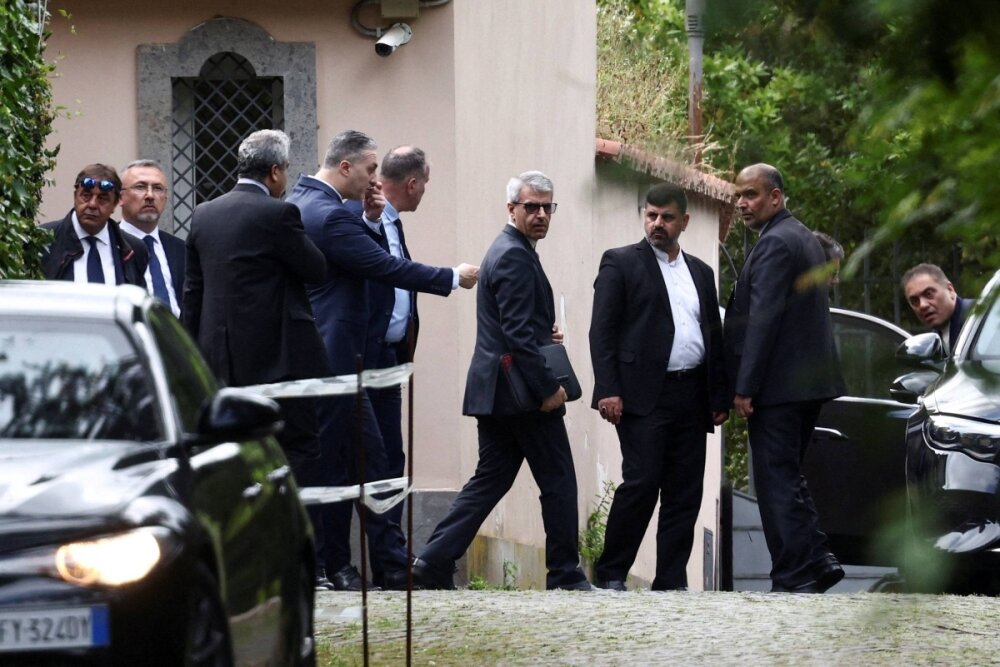Next round of indirect talks with U.S. to be held Sunday in Muscat: Tehran

TEHRAN – Iran’s Foreign Ministry announced Monday that the next round of indirect negotiations between Tehran and Washington over the revival of the nuclear deal will take place on Sunday, June 15, in Muscat, the capital of Oman.
Foreign Ministry spokesman Esmaeil Baghaei Asl confirmed that following a series of consultations, preparations are underway for the upcoming diplomatic engagement. The negotiations will be mediated by Oman, which has played a longstanding role in facilitating dialogue between the two sides.
Since April, Iran and the United States have held five rounds of indirect talks, with three sessions hosted in Muscat and the other two in Rome. The goal of the discussions is to reach a framework agreement that could replace the 2015 Joint Comprehensive Plan of Action (JCPOA), which collapsed after the U.S. unilaterally withdrew from the accord in 2018 under the Trump administration.
While the two countries have shown cautious willingness to engage diplomatically, the process has been marred by significant obstacles. Iranian officials have repeatedly criticized Washington’s shifting positions during the talks, noting them as contradictory and undermining progress.
A major sticking point in the negotiations remains the U.S. demand that Iran cease all uranium enrichment activities under any new agreement. Iran has firmly rejected this condition, stating that its right to enrich uranium is enshrined under the Non-Proliferation Treaty (NPT). Tehran has maintained that its nuclear program remains peaceful and that its activities are within the bounds of international law.
Tensions escalated further following the release of the International Atomic Energy Agency’s (IAEA) latest quarterly report. The UN nuclear watchdog claimed that Iran had significantly expanded its stockpile of highly enriched uranium.
In a joint statement issued last week, Iran’s Foreign Ministry and the Atomic Energy Organization of Iran (AEOI) rejected the IAEA report as “politically motivated and unbalanced.” They argued that the document had been drafted under pressure from European countries and did not reflect technical realities on the ground.
Amid these developments, Iranian Deputy Foreign Minister for Political Affairs Majid Takht-Ravanchi offered more details on Tehran’s position moving forward. In a televised interview on Monday, he stated that Iran’s forthcoming response to the latest U.S. proposal would be “logical and well-considered,” adding that it could serve as a viable basis for continued negotiations.
“Our response is being prepared and is not finalized yet, but considerable progress has been made,” Takht-Ravanchi said. “We believe the proposal we will put forward is a reasonable one. We hope it will be completed within the coming days and submitted to the Omani Foreign Minister, who will then convey it to the American side.”
He stressed that Iran’s proposal is far from a simplistic statement. “This is not a one-liner or a short paragraph that can be brushed aside. It includes elements that demonstrate our seriousness and reflect a structured, principled approach. Any credible proposal must have internal coherence—a logical beginning and end—with no contradictions between its parts.”
Takht-Ravanchi went on to note that the document Iran is drafting is not intended as a comprehensive agreement or a lengthy memorandum, but rather as a framework that could pave the way for more detailed negotiations.
“We are not looking to submit a long, complex agreement that would take months to prepare,” he said. “What we are proposing is a structured framework for reaching consensus. If both sides can agree on the basic outline, then more in-depth negotiations can begin on the details. We believe such a framework has the potential to produce an agreement that satisfies both parties.”
The deputy minister acknowledged that negotiations are rarely straightforward. “In any international negotiation, the initial text is only the starting point. We may be able to reach a quick consensus on some parts while other sections may require more time and discussion.”
Still, he reiterated that Iran remains committed to diplomacy. “We believe that if there is genuine political will on the other side, there is room to move forward.”
Leave a Comment